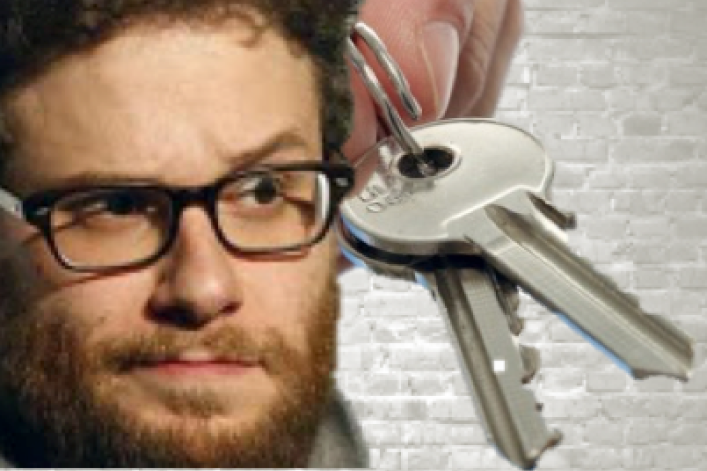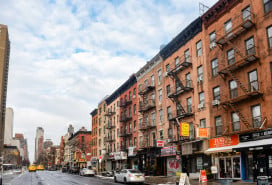8 things your future landlord will never tell you

Even if you read the fine print on your lease, there are some things your landlord will never tell you. Here are some of the things – from bugs to noise to Facebook snooping – that your landlord may be keeping under wraps.
1. Noise.
Sure, it’s New York City and you have to expect some noise, but sometimes it’s just too much. Don’t expect to know that before you move in. One landlord on the Lower East Side says he doesn’t mention the loud elevated train that passes outside his window. “I’m right next to the Williamsburg Bridge,” he said. “I don’t hide it but I don’t advertise it!”
Other landlords said they do ‘fess up: “I have one unit which receives considerable AC noise; I disclose this,” one landlord said. “No point in having someone move in and right back out again.”
Switch appliances off and on to listen for yourself, and take note of construction sites, bus stops, nearby schools and religious establishments.
2. Bug history.
Although New York’s new bed bug-disclosure policy means landlords must give you a disclosure form listing all bedbug infestations they’ve had in the past year, landlords don’t want to share more than they have to.
“Past bug problems have no bearing on the current situation,” says one landlord. The stigma stays, even when the bugs are gone.
Check online at Bedbugregistry.com before looking at an apartment, and look up the building’s bed bug complaint and violation history on the NYC Department of Housing Preservation and Development’s website. (Bed bug complaints on the HPD site represent formal complaints filed by residents; violations mean a city inspector has confirmed the presence of bed bugs. You will also see the specific unit numbers involved.)
Meanwhile, keep your eyes peeled for roach poison and rodent droppings and do your best to assess the general cleanliness of the place.
3. Toilet/window/refrigerator/lock/sink/cabinet that needs repair.
Almost every apartment has something that needs improvement, but your landlord is not going to be the one to point it out. (Neither is your broker, if you use one.)
If you do notice something that the landlord promises to repair, get it in writing, and make sure you can live with it if your landlord becomes less motivated with a signed lease in hand.
Ideally, choose a building with in-house maintenance staff, or at least staff that’s on call for repairs.
4. The fact that your landlord checked you out
In this day and age, it’s not only potential employers and paramours who check you out on online.
“I do not tell prospective tenants I check out their Facebook pages,” says one landlord. He also looks over their previous residences and runs a criminal background check.
Though it should go without saying, don’t post wild and crazy pictures online unless you want your landlord – and the rest of the world – to see them.
5. How much your neighbor pays.
Chances are your landlord won’t tell you how much others are forking over each month (or how much he's willing to negotiate). In the down market, the amount can vary widely especially if landlords offer a month of free rent to attract tenants.
“You want to get as much as you can” for each unit, one manager says. “It’s about the bottom line.”
Check StreetEasy.com for recent asking prices on similar units in the building and around the neighborhood; if comparable apartments seem to be going for less, use that information to try to bargain--especially now, in the traditionally slow winter rental season.
6. The apartment is about to be sold--or foreclosed on
This is a particular concern when you're dealing with a small, 'accidental' landlord whose main occupation is something other than landlording. In fact, he or she may have gotten into the business after buying at the height of the market and being unable to sell.
7. You are not welcome here
If you're renting in a co-op or condo building, be aware that renters can be treated unequally, and legally so. For example, renters may not be allowed to use the roof deck, or get a dog.
8. Your next door neighbor is a hoarder...
...or an abusive alcoholic, piano teacher, fried fish aficionado, a family with three kids under the age of 5, a Korean brothel, etc. Do your due diligence - knock on a couple of doors and ask how your neighbors like living there, how quiet the building is, is there any problem with cooking odors or secondhand smoke, etc.
Related:
Winter rental negotiating tips
12 insider tips for renting in NYC
Finding an apartment without bed bugs
Read this before you buy, rent or sell a noisy apartment
Find a great agent with BrickUnderground's Agent Referral Service























